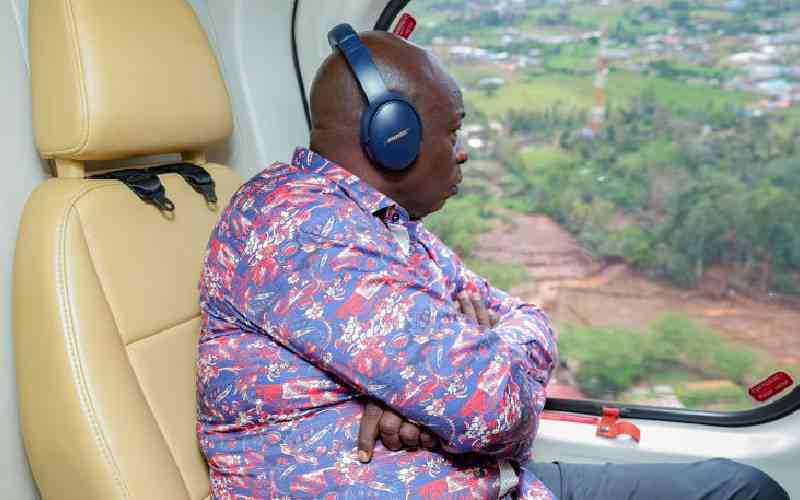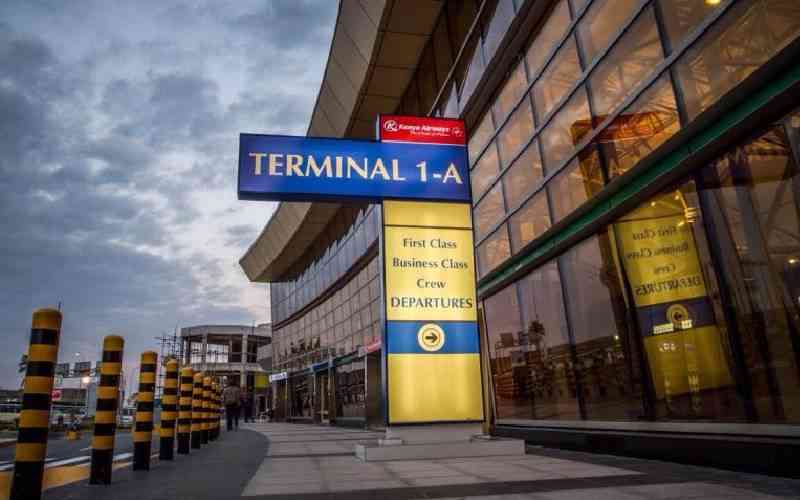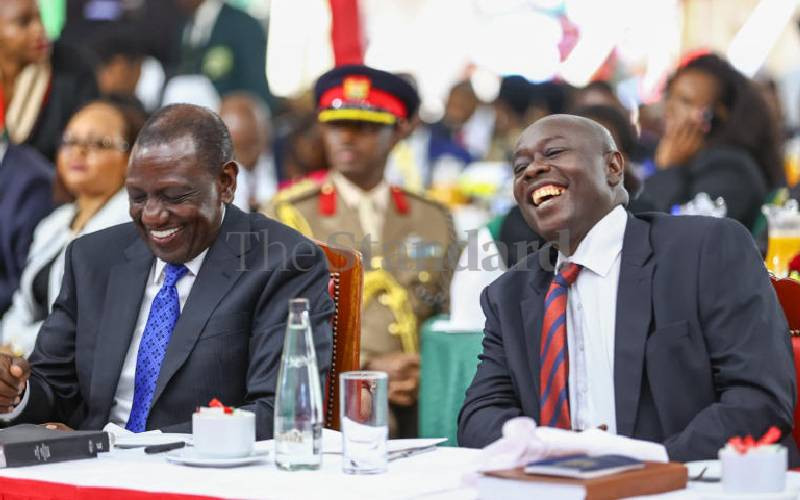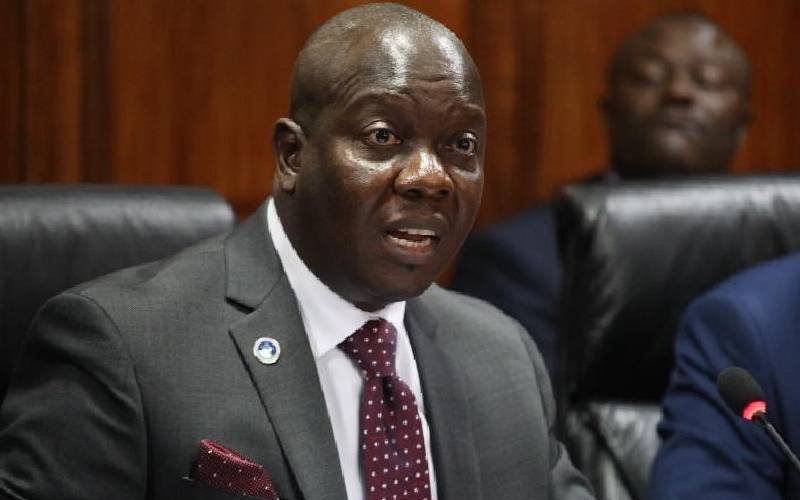By Amos Kareithi
The empty stadium with a tattered pavilion and vandalised facilities remains a stark reminder of a dramatic dark past.
Ruring’u Stadium in Central Province was never meant to be more than a prayer and playing field.
Here, the colonialists set base on July 6, 1942, to recruit and train its army as hostilities in Europe reached fever pitch and the world was gearing up for a showdown.
Ironically, the same stadium that hosted colonialists’ military operations against foreign enemies was later used to sound the drums of war against its regime.
It was at a meeting in Ruring’u that Jomo Kenyatta publicly asked Kenyans to pick up arms against the colonial regime.
The stadiums’ rich history began in 1942 when the colonialists met the Aithiegeni a Mbari ya Murumuki clan and made a major announcement.
They quickly wanted a place they could train recruits, and the Aithiegeni clan land had been identified.
Documents still retained by the clan indicate the five acres were to be hived off the clan’s collective land to create the facility for military operations and would later be returned to the owners.
Second World War came and after it ended, the Government did not keep its promise and the land did not revert back to the owners. Neither did it in any way recognise the black Kenya soldiers it had recruited. It continued paying an annual rent of Sh300 up to 1963.
Former freedom fighters’ faces light up at the mention of Ruring’u, which holds fond memories for their youthful days.
Even Bathlomeo Wanyeki Macharia, 80, smiles as he recalls how the events of 1952, at Ruring’u, shaped his life.
Keen to attend a highly publicised meeting which was to be addressed by Kenyatta, Wanyeki recalls how busloads of youths came from Nairobi and reached Ruring’u in the afternoon of July 27,1952.
"There was an electric mood when we arrived. Kenyatta was there beaming as he acknowledged greetings. There were very few seats. Only the leaders at the high table had chairs. Everybody else was either sitting on the grass or standing," Wanyeki recalls.
Led by Kenyatta
Stay informed. Subscribe to our newsletter
As Kenyatta called for action against the colonialists, thousands of those present ululated as the black, green and red flag was unfurled to the excitement of crowds.
Wanyeki added: "Shortly after this meeting, politicians led by Kenyatta were rounded up by the Government and detained. I too lost my job as a clerical officer.
"Some loyalists had tracked me down to Ruring’u and accused me of being a Mau Mau activist. My passport was cancelled and I missed my scholarship to India." Wanyeki recalls.
When Kenyatta was released in 1964, Kenya held yet another symbolic meeting in Ruring’u, where this time, he called on all the former freedom fighters to lay down their arms, forgive but not to forget atrocities committed against them.
Dreadlocked former freedom fighters emerged from forests and brought their arms, including homemade guns.
Others handed over uniforms and other tools of terror captured from whites and loyalists during the freedom struggle.
African Native Court
A number of anti-riot helmets made up of cast and plaster-like material surrendered by some of the fighters are on display at a museum, situated in what used to be the African Native Court.
The symbols of colonial power are displayed there alongside faded pictures of former chiefs, Wambugu Wa Mathangani, Karuri Gakure, Ndiuni Wa Murathimi, Nderi Wang’ombe and the legendary Wangu Wa Makeri, who could not sit on a stool but on a man’s back.
The African Native Court, whose walls were made up of sacks, wire mesh and sand, and was constructed between 1924 and 1926, has withstood elements better than the stadium which may soon be erased altogether once the land is parcelled out.
Agricultural showground
The stadium has undergone a lot of changes since its establishment in 1942 and for decades, served as an agricultural showground for Central Kenya until 1995 when the venue was shifted to Kabiruini and its ownership passed over to Agricultural Society of Kenya.
Notices of houses to rent are posted outside the main gate. Inside the stands, which had been constructed by the various Government departments, corporations and private companies are now being rented out by an estate agent on behalf of ASK.
The Aithiegeni a Mbari ya Murumuki clan has all but given up on ever reclaiming the stadium, just as former freedom fighters have forgotten the bonds forged at Ruring’u and the promises made by Kenyatta as soon as Kenya became independent.
The five-acre piece of land has been sliced into several portions now owned by ASK but the role played by the stadium in uniting Kenyans against colonialists will be forever in their minds and history books.
 The Standard Group Plc is a
multi-media organization with investments in media platforms spanning newspaper
print operations, television, radio broadcasting, digital and online services. The
Standard Group is recognized as a leading multi-media house in Kenya with a key
influence in matters of national and international interest.
The Standard Group Plc is a
multi-media organization with investments in media platforms spanning newspaper
print operations, television, radio broadcasting, digital and online services. The
Standard Group is recognized as a leading multi-media house in Kenya with a key
influence in matters of national and international interest.
 The Standard Group Plc is a
multi-media organization with investments in media platforms spanning newspaper
print operations, television, radio broadcasting, digital and online services. The
Standard Group is recognized as a leading multi-media house in Kenya with a key
influence in matters of national and international interest.
The Standard Group Plc is a
multi-media organization with investments in media platforms spanning newspaper
print operations, television, radio broadcasting, digital and online services. The
Standard Group is recognized as a leading multi-media house in Kenya with a key
influence in matters of national and international interest.





